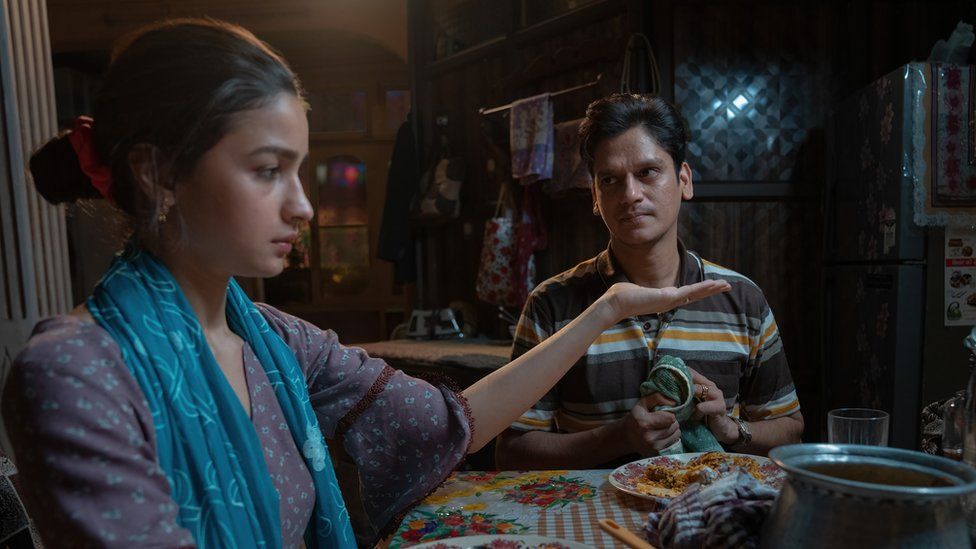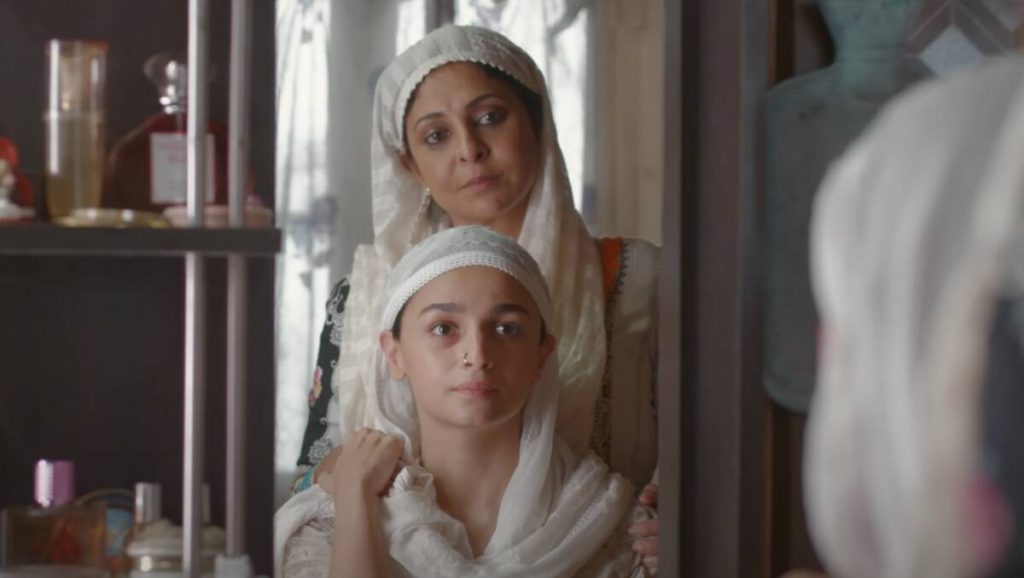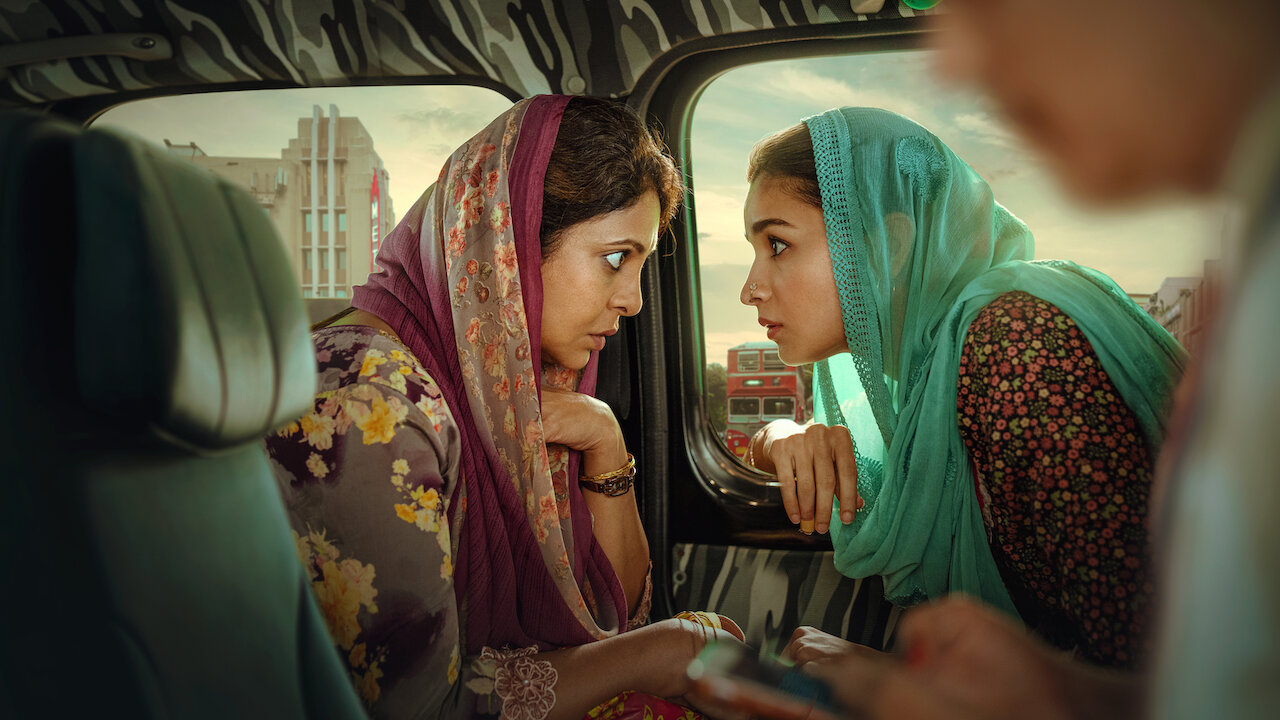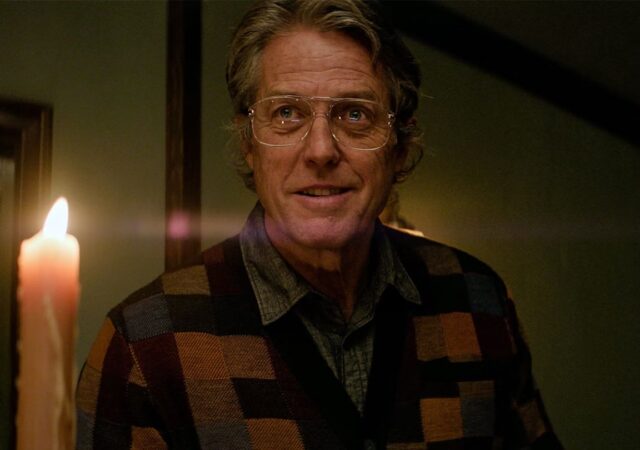For the first movie released under her production company, Alia Bhatt has selected a delicate subject like domestic abuse.
The activist-style film urges women to confront violence head-on rather than attempting to bargain with the scorpion, the antagonistic husband in the narrative. It prevents a violent husband from falling victim to eating patterns and societal conditioning. The creature has felt entitled from birth, and this sense of entitlement manifests itself when he imagines being abated by the weaker sex.
Darlings contends that when it comes to domestic abuse, there are no exceptions to the rule.
The story immerses us in the lives of Badru (Alia Bhatt) and Hamza (Vijay Verma), taking place in Mumbai’s Byculla area . They appear to be a loving pair after three years together, but Hamza seems to think that violence is a typical part of married life. She feels it’s more to do with the alcohol in his stomach than the emptiness in his skull because he strikes her, she sobs, and he apologizes. In marriages, it is a risky tendency that we all see but fail to notice, comparable to the beautician who resides one floor below the couple’s home.
Internalizing a slippery slope?
Many independent women who would not tolerate abusive conduct even for a day may find the film upsetting. Darlings will irritate you, especially after seeing flicks like Thappad. However, you must lay aside your beliefs of right and wrong and attempt to comprehend Badru’s need to keep her relationship alive and patiently wait for the limit of her tolerance.
The subject of right and wrong is raised several times throughout the film, most notably in the end, when Badru is forced to make a decision that will affect her life forever. Throughout the film, there is a tug of war between the mother, who favors more harsh measures, and the daughter, who follows her heart until her final hope is also extinguished, changing the very foundation of the beliefs.
How much of the darkness conveys the comedy aspect of it?

According to the trailer, Darlings is neither a delightfully dark comedy nor a twisted, scary thriller. The film, told in a straight, basic manner, is about an abuser manipulating his spouse in a man vs. woman conflict. While the subject and views are essential, the storyline and editing may be improved.
The film is shot in a restricted location throughout (a rather big Chawl room), making it more of a boring drama than a compelling home noir. The climax is ethically ambivalent and allows reflection.
The absurdity of a beauty shop lady painting a Mehendi on a beaming bride while being privy to an abusive marriage next door, or a jailed Hamza being made to peel veggies by a newly hardened wife… and other similar nuanced moments are well conveyed.
Darlings is a gripping case study of marital abuse, but it wouldn’t be the same without Shefali and Alia. Both women talk via their eyes, and their exceptional performances and connection compensate for the monotonous pace at times.
Abused women: Trauma bonding

The bond between mother and daughter determines the film’s tone: heartbreaking, emotional passages or more complex parts lightened with subtle laughter. They seamlessly slide into the skin of their characters, feed off each other’s energy as performers, and transport you to their world.
Despite being let down by the men in their life, they choose not to see themselves as victims, which is the centerpiece of this provocative domestic drama about male power, physical-emotional abuse, and intimidation. There are various reasons to see this film, but Shefali and Alia’s outstanding performances are at the top of the list.
In the face of abuse…
In character far from one note, Vijay Varma fleshes out an exceedingly unlikeable man whose romantic ideals verge on the psychopathic. In most aspects, he appears to be a pleasant man, yet it only takes the slightest provocation to go off the handle. The actor accomplishes the behavioral adjustments with the least amount of effort.
Roshan Mathew enjoys adding subtle efficiency to his cinematic performances as well. Even though his character in Darlings feels a little underwritten, he does just that. Once he becomes an accomplice in the women’s adventure, we see new shades being added to his character that acts as a sprinkle on the frosting.
It’s very easy to mistake Badru’s actions for misandrist traits, along with her internalized misogyny and inclinations toward superstition. Although the movie played it safe by occasionally involving investigations and law enforcement, critics have pointed out the duality it walks on. However, it is imperative to commend the courage it took to present such a complicated issue in a domestic, contemporary sense.
Darlings forges its dark path while deftly utilizing genre elements and avoiding common narrative tropes. It is engrossing from beginning to end and is watchable at best, due to the actors’ performances.



























